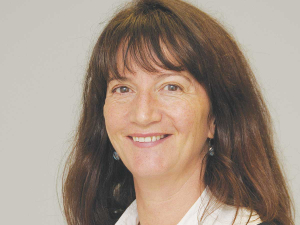M.I.A.
OPINION: The previous government spent too much during the Covid-19 pandemic, despite warnings from officials, according to a briefing released by the Treasury.
 Rural GP network chair Dr Fiona Bolden says there are concerns about the number of Covid-19 tests per head of population been lower in rural areas than urban regions.
Rural GP network chair Dr Fiona Bolden says there are concerns about the number of Covid-19 tests per head of population been lower in rural areas than urban regions.
There’s concern about the number of COVID-19 tests per head of population been lower in rural than urban areas.
Chairperson the Rural GP Practice Network, Dr Fiona Bolden told Rural News that this could lead to the underdiagnosing of the virus in rural areas and it potentially taking off.
She says there are more people currently working in rural areas than in urban centres –such as farmers, orchardists and those in processing facilities who are classed as essential workers.
Bolden says access to COVID-19 testing in rural areas has improved since the lockdown. She is based in Whangamata and says there is now a Community Based Assessment Centre (CBAC) in her area as well as the one at Thames. There also some mobile testing taking place for people who have difficulty accessing CBAC’s.
“Right now, the CBAC’s are just open during normal hours, but there are some rural practices that are designated testing centres so people could still get tested in those centres and they may have weekend opening.”
Bolden says a big worry for her and other leading rural health professionals – such as Professor Ross Lawrenson of Waikato University and Associate Professor Garry Nixon of the Dunedin School of Medicine – is the way the number of known cases of COVID-19 are being made public. Bolden says, for example, in the case of the Waikato District Health Board (DHB) there is just one figure for the whole of that district.
“We need to get more clarity around where people are being tested. Waikato has a huge rural area, but we only get the figures for the whole Waikato DHB – it is very hard to know which cases relate to specific rural areas because we need to know this is terms of our health planning. We are trying to push for the figures to be broken down into individual territorial local authorities.”
Bolden says it may be acceptable for some DHB’s to give the overall number, but she believes rural practices need to get data which relates to their communities. She says at the moment there is a problem in some areas with large numbers of people coming to pick and process fruit and vegetables and the potential need for them to be tested.
“With those big gangs of workers coming into districts you absolutely need to have good eye on what’s going on,” she explains.
“Unless you are looking at the specific numbers in different areas and number of tests that have been done and where the positive tests are, you can’t really pick up whether you are doing enough testing in these areas. Also, you need to know what the incidence is within the community.”
Bolden says if you don’t do the work in the community you are never going to manage this.
“It’s all about what happens in the community at a community level. If you don’t actually address each community properly and specifically you are in danger of missing the boat altogether,” she says.
Knuckling down
Bolden says rural GP’s are knuckling down and getting on with the job.
She says some money from government has helped and at least recognises the issues they face. But there are big changes in the way they are having to do things. She says virtual consultations are one of these and some elderly folk are finding this hard to cope with.
“Some of them have real difficulty getting their heads around that and it’s particularly hard for people who have few issues around memory,” she told Rural News. “It’s a case of managing that in a very careful and thoughtful way.”
Bolden says mental health issues are yet to really surface in rural areas. She says people are still very tied up in survival mode trying to deal with COVID-19 and the lockdown. She says some areas have tried to put in more counselling services in anticipation of what might happen in the future.
“But at the moment we haven’t begun to see the demand which is sitting out there.”
The Real Estate Institute of New Zealand (REINZ) has released its latest rural property report, providing a detailed view of New Zealand’s rural real estate market for the 12 months ending December 2025.
Rural retailer Farmlands has released it's latest round of half-year results, labeling it as evidence that its five-year strategy is delivering on financial performance and better value for members.
OPINION: "We are back to where we were a year ago," according to a leading banking analyst in the UK, referring to US president Donald Trump's latest imposition of a global 10% tariff on all exports into the US.
DairyNZ says the Government’s proposed Resource Management Act reform needs further work to ensure it delivers on its intent.
Overseas Trade Minister Todd McClay says he's working constructively with the Labour Party in the hope they will endorse the free trade agreement (FTA) with India when the agreement comes before Parliament for ratification.
Donald Trump's latest tariff tantrum has again thrown the world of trade into a new round of turmoil and uncertainty, and NZ is caught up in it.